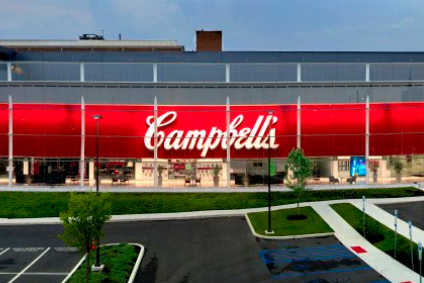
US food major Campbell Soup Co. has announced new packaging sustainability goals.
Campbell is aiming to transition 100% of packaging to recyclable or industrially compostable designs and materials by 2030.

Discover B2B Marketing That Performs
Combine business intelligence and editorial excellence to reach engaged professionals across 36 leading media platforms.
The company plans to reduce waste by increasing the recyclability of its packaging, which will by extension help it increase circularity – keeping materials in use and out of landfills.
The soup and snacks giant said it is taking a “holistic approach” to reducing waste through measures including using recycled content and helping to educate consumers.
Campbell said it wants to drive increases in recycling rates through standardised on-pack labelling – by including the How2Recycle label on 100% of packaging by 2022.
It also plans to develop infrastructure to improve the collection and recycling of packaging by building and investing in partnerships with peers and industry groups.

US Tariffs are shifting - will you react or anticipate?
Don’t let policy changes catch you off guard. Stay proactive with real-time data and expert analysis.
By GlobalDataCraig Slavtcheff, Campbell’s executive vice president, global research and development, said: “Our new packaging commitments provide a roadmap to further reduce the environmental impact of our packaging over time and build upon our history of sustainability.”
Campbell suggested it has already made “significant progress” in reducing waste and encouraging recycling:
Last year, the multi-serve bottles of its its V8 V-Fusion and V8 Blends vegetable drink switched from shrink sleeve labels to wrap labels, allowing the bottles to be more easily sorted and recycled in municipal recycling processes, and it redesigned the crisp bags for its Kettle brand resulting in a 43% reduction in plastic and reducing the amount of plastic to landfill by two million pounds per year.





